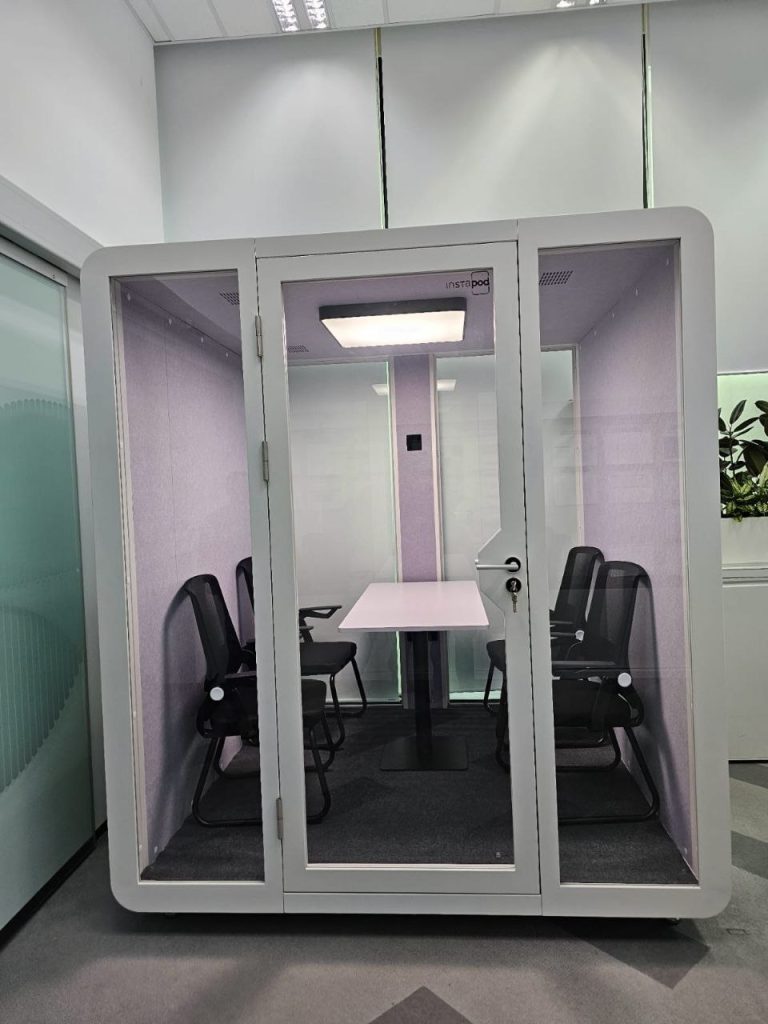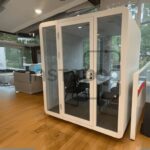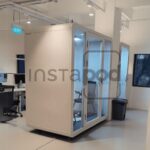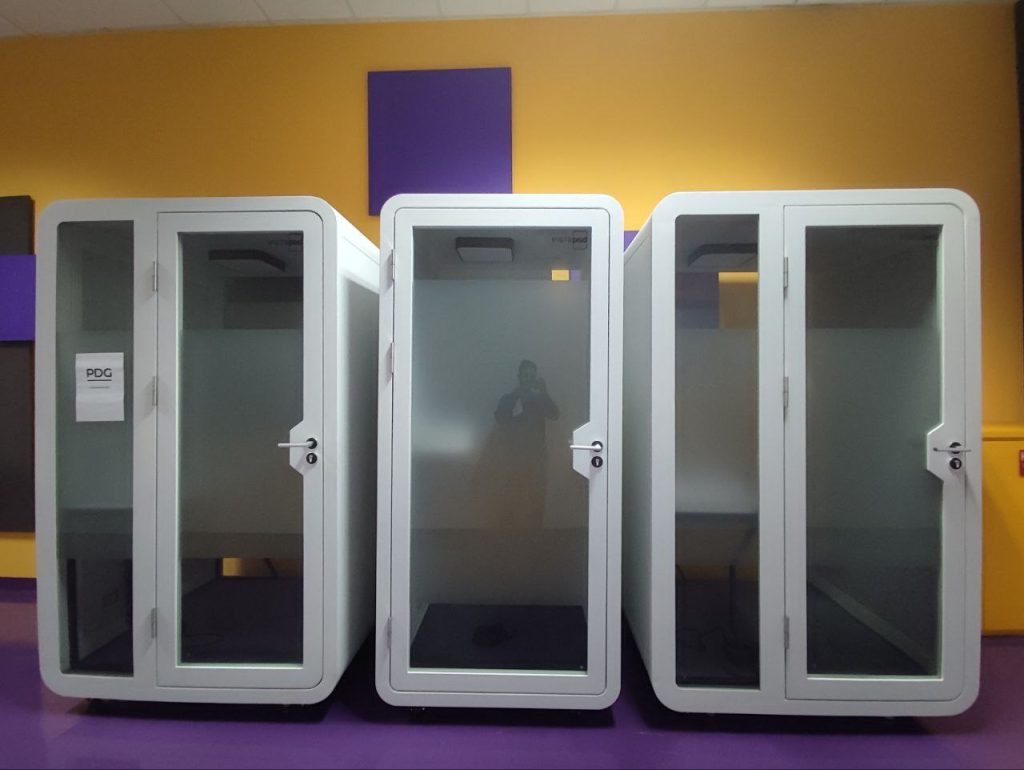No pods added to your quote request yet. Add some now for a free quote!
The Impact of Office Pods on Employee Engagement and Satisfaction

In today’s dynamic workplace environment, the need for flexible, innovative solutions to enhance productivity and employee well-being is more pressing than ever. Among the many trends shaping modern office design, one of the most impactful is the adoption of office pods. These self-contained, modular units offer a unique blend of privacy and collaboration, and their influence on employee engagement and satisfaction is profound.
Redefining Workspace Flexibility
Office pods are a response to the challenges posed by open-plan offices, which, despite their initial promise of fostering collaboration, often result in distractions and reduced productivity. The constant noise and lack of privacy in open offices can lead to decreased focus and increased stress, ultimately affecting employee engagement and satisfaction. Office pods provide a solution by offering a quiet, private space where employees can concentrate on tasks without interruptions.
The flexibility of office pods is one of their most significant advantages. They can be installed in various configurations to meet the specific needs of an organization. Whether used for solo work, small meetings, or video calls, office pods offer a versatile solution that can adapt to different tasks and work styles. This flexibility not only enhances productivity but also empowers employees by giving them control over their work environment.
Enhancing Employee Engagement
Employee engagement is a critical factor in organizational success, and it is closely linked to the quality of the work environment. When employees have access to spaces that support their work needs, they are more likely to feel valued and motivated. Office pods contribute to this by providing a space where employees can focus, think creatively, and recharge.
In an office environment where distractions are minimized, employees can engage more deeply with their work. This deep work is essential for tasks that require concentration and problem-solving skills. Office pods facilitate this by offering a retreat from the noise and activity of the main office space. When employees can engage in deep work, they are more likely to produce high-quality outcomes, leading to a greater sense of accomplishment and job satisfaction.
Moreover, office pods can also serve as spaces for informal meetings and collaboration. When employees have access to private, comfortable spaces for discussion, it can lead to more meaningful interactions and stronger working relationships. These positive social interactions contribute to a sense of belonging and engagement, which are crucial for employee satisfaction.
Boosting Employee Satisfaction
Employee satisfaction is influenced by several factors, including the work environment, work-life balance, and the ability to perform tasks effectively. Office pods address these areas by providing a space that supports both individual work and collaboration, contributing to a more satisfying work experience.
The privacy offered by office pods can be particularly beneficial for employees who need to take calls or conduct meetings in a confidential setting. This not only helps in maintaining professionalism but also reduces the stress associated with finding a quiet space in a busy office. When employees have access to spaces that meet their needs, they are more likely to feel satisfied with their work environment.
Additionally, the design and aesthetics of office pods can have a positive impact on employee satisfaction. Many office pods are designed with comfort and ergonomics in mind, providing a pleasant and inviting space to work. The inclusion of features such as soundproofing, comfortable seating, and good lighting can make a significant difference in how employees feel about their work environment.
Supporting Well-being and Work-life Balance
Office pods also contribute to employee well-being by providing a space where they can take a break or recharge during the workday. The ability to step away from the desk and work in a different environment can help reduce stress and prevent burnout. By supporting well-being, office pods contribute to a healthier, more balanced work-life experience.
In addition, the flexibility of office pods can support hybrid work models, where employees split their time between home and the office. In this context, office pods can be used as dedicated spaces for remote workers when they are in the office, ensuring that they have a productive environment that meets their needs.
Conclusion
The impact of office pods on employee engagement and satisfaction is undeniable. By offering a flexible, private, and comfortable space for work, office pods address many of the challenges associated with modern office environments. They enhance focus, support deep work, and provide a space for meaningful interactions, all of which contribute to higher levels of engagement and satisfaction.
As organizations continue to adapt to the evolving needs of their workforce, office pods will likely play an increasingly important role in creating a work environment that promotes productivity, well-being, and employee satisfaction. By investing in office pods, companies can create a more supportive and engaging workplace, ultimately leading to a more motivated and satisfied workforce.
Check these out too!
-
 Silence Is Productivity: WorkPods ExplainedFebruary 16, 2026/0 Comments
Silence Is Productivity: WorkPods ExplainedFebruary 16, 2026/0 Comments -
 Why Every Office Needs a Workplace PodsFebruary 16, 2026/
Why Every Office Needs a Workplace PodsFebruary 16, 2026/ -
 How Working Pods Increase Team ProductivityFebruary 16, 2026/
How Working Pods Increase Team ProductivityFebruary 16, 2026/

